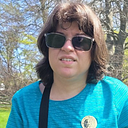Our Favorite Books — That Don’t Exist
In this new Book Riot article, I examine several famous, fake books within books (including All of Them Witches in the photo below). What purposes do they serve inside the main narratives, and why do some people think or wish they were real? Excerpts from these nonexistent books often function as thumbnail sketches for characters or world-building, especially in SFF and horror.
Frank Herbert’s Dune series is a great example of this. Many chapters have epigraphs from texts — in different genres! — that exist only in the universe of the series. If Princess Irulan’s biography of Paul Atreides or the collections of his sayings and political theories existed in our world, I might find them too tedious to read. They also might be redundant. The short quotes Herbert included in the text are all readers need to get a sense of the series’ lore. I don’t need to read multiple nursery rhymes mythologizing Paul to know that he became a god-like figure, as I blogged here on my Medium this March. Their existence in the story is itself the point.
The Dune saga also contains fragments from the Orange Catholic Bible: a heavily revised version of the Bible used thousands of years in the future on Paul’s planet of origin, Caladan. Many prophecies in the series from Caladan and Arrakis read like the Book of Revelation, but with a galactic perspective.
Some fans of Pulp Fiction assume the Ezekiel 25:17 monologue is a real passage from the Bible. Like Dune, it contains some Biblical-sounding language. But aside from one embellished line from the Bible, the rest of the speech was made up for the movie.
Another fake book that a lot of people seem to think is real: The Origins of Fantasy and Its Place in the World Matrix: Jungian Perspectives, which Charlie Reade finds in Mr. Bowditch’s house in Fairy Tale by Stephen King. Lots of people have asked King on Twitter if this book is real. It sounds like an academic or literary criticism book, maybe even with some critical theory. I’d love to read it — but it doesn’t exist!
In November 2022, I blogged here on my Medium about the book Fairy Tale’s use of ableist tropes. Ironically, in real life, Carl Jung said archetypes were often subconscious. I wish King or his editors had considered how many biases are largely cultural and subconscious when depicting disability in this novel.
